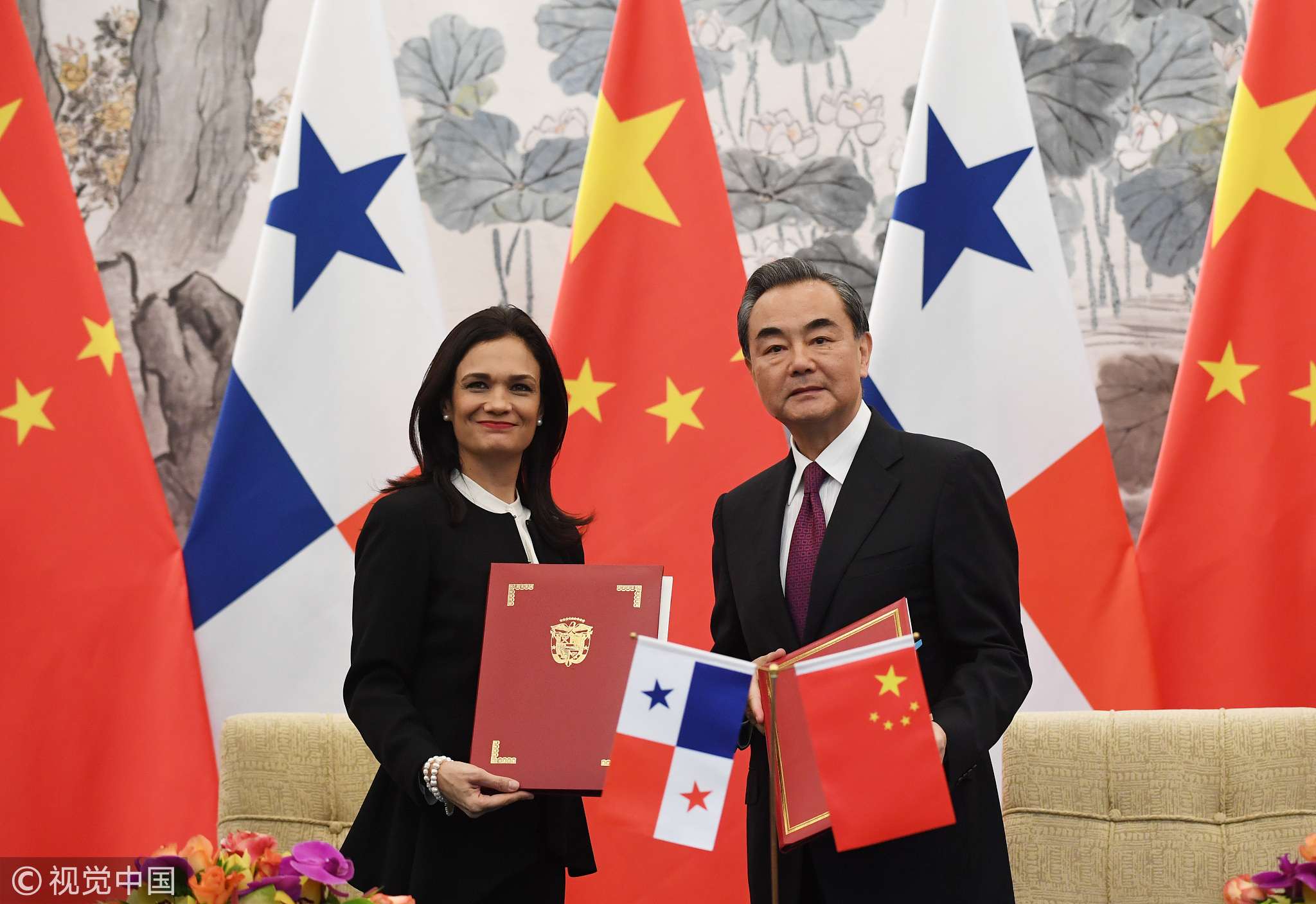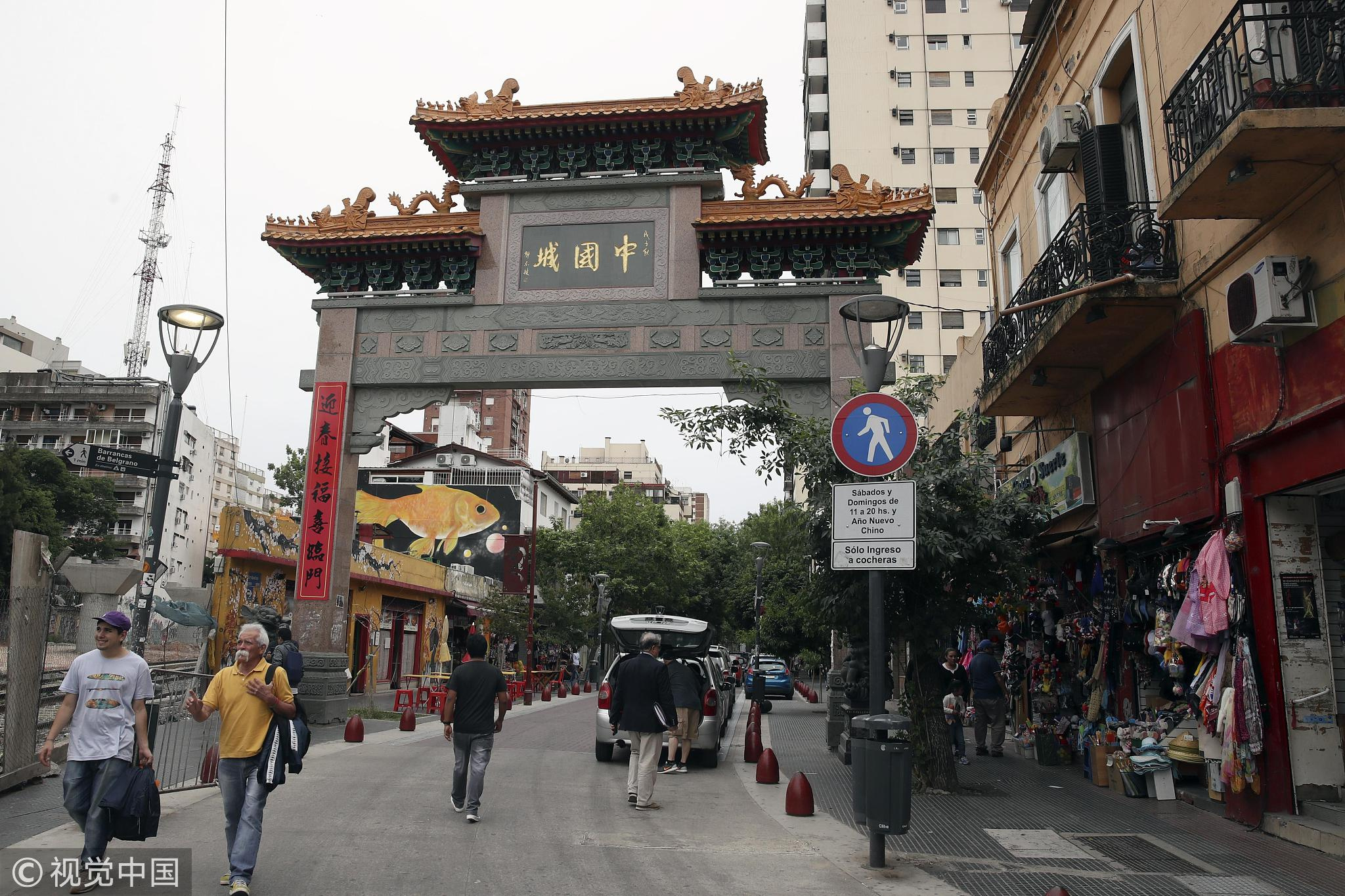
Opinions
11:11, 29-Nov-2018
Opinion: No need for President Monroe to roll over in his grave
Updated
11:11, 02-Dec-2018
Jiang Shixue

Editor's note: Jiang Shixue is a professor at the Institute of Global Studies at Shanghai University. The article reflects the author's opinion, and not necessarily the views of CGTN.
Latin America, as a part of the developing world, has always been playing a larger role in China's foreign policy.
Indeed, over the past one or two decades, China's relations with Latin America have been developing very rapidly. The Communist Party of China has established working relations with most of the political parties in Latin America. Chinese President Xi Jinping has been there three times and his fourth trip will take place soon; and, every year, quite a few leaders from Latin America come to Beijing.

Panama's Vice President and Foreign Minister Isabel de Saint Malo (L) and Chinese Foreign Minister Wang Yi pose with their documents after signing a joint communiqué on establishing diplomatic relations, in Beijing, June 13, 2017. /VCG Photo
Panama's Vice President and Foreign Minister Isabel de Saint Malo (L) and Chinese Foreign Minister Wang Yi pose with their documents after signing a joint communiqué on establishing diplomatic relations, in Beijing, June 13, 2017. /VCG Photo
In the economic field, bilateral trade and investment have been growing steadily. China has become the second largest trade partner of Latin American countries as a whole. Chinese people can now easily purchase Latin American products. So far, China has signed free trade agreements (FTA) with Chile, Peru and Costa Rica. In the near future, China and Panama will conclude the negotiation of an FTA.
China-Latin America cooperation also occurs in other areas ranging from food to football, from media to music, from sports to satellites, and from tourism to technology.
Latin America is often considered as the back-yard of the U.S. That is why the U.S. is concerned about China's presence in the region. “Monroe certainly would be rolling over in his grave,” if he could see the rapid development of the bilateral relations between China and Latin America, said Julia Sweig, a U.S. scholar specializing in Latin America and U.S.-Latin America foreign policy.
Former U.S. Secretary of State John Kerry said on November 18, 2013, in a conference at the Organization of American States, in Washington, D.C., “Today, however, we have made a different choice. The era of the Monroe Doctrine is over.”
However, the U.S. often changes its tones and attitudes. Rex W. Tillerson, then U.S. Secretary of State, said on February 1, 2018, at the University of Texas (Austin), “Sometimes I think we have forgotten about the importance of the Monroe Doctrine and what it meant to this hemisphere and maintaining those shared values. So I think it's as relevant today as it was the day it was written.”

Chinatown in Buenos Aires. /VCG Photo
Chinatown in Buenos Aires. /VCG Photo
The U.S. even recalled its top diplomats, i.e., Ambassador to the Dominican Republic Robin Bernstein, U.S. Ambassador to El Salvador Jean Manes and U.S. Chargé d'affaires in Panama Roxanne Cabral to “discuss ways in which the United States can support strong, independent, democratic institutions and economies throughout Central America and the Caribbean," according to a statement by the U.S. Department of State.
In fact, there is no need for Monroe to roll over in his grave.
Since its independence in the early 19th century, Latin America has been open to the outside world. It has political and economic partnerships and other kinds of relations with countries in every corner of the world. So why should China keep itself away from it?
As the largest emerging economy, China has offered Latin America a good ride on its economy. Sales of Latin American products, from Argentine wine to Chilean fruits, and from Mexican beer to Colombian coffee, in the Chinese market have been increasing very rapidly. Chinese investment has made up for the short-fall of Latin America's lack of capital accumulation. It is clear that Chinese purchases of Latin America's primary commodities has made it possible for it to earn more foreign exchanges.
Furthermore, China's relationship with Latin America is part of the South-South cooperation, and China never wishes to challenge the traditional sphere of influence of the U.S. in Latin America. No one can deny the fact that China's economic ties with Latin America can benefit the region's economy and a prosperous Latin America is in the interests of its northern neighbor.
(If you want to contribute and have specific expertise, please contact us at opinions@cgtn.com.)

SITEMAP
Copyright © 2018 CGTN. Beijing ICP prepared NO.16065310-3
Copyright © 2018 CGTN. Beijing ICP prepared NO.16065310-3